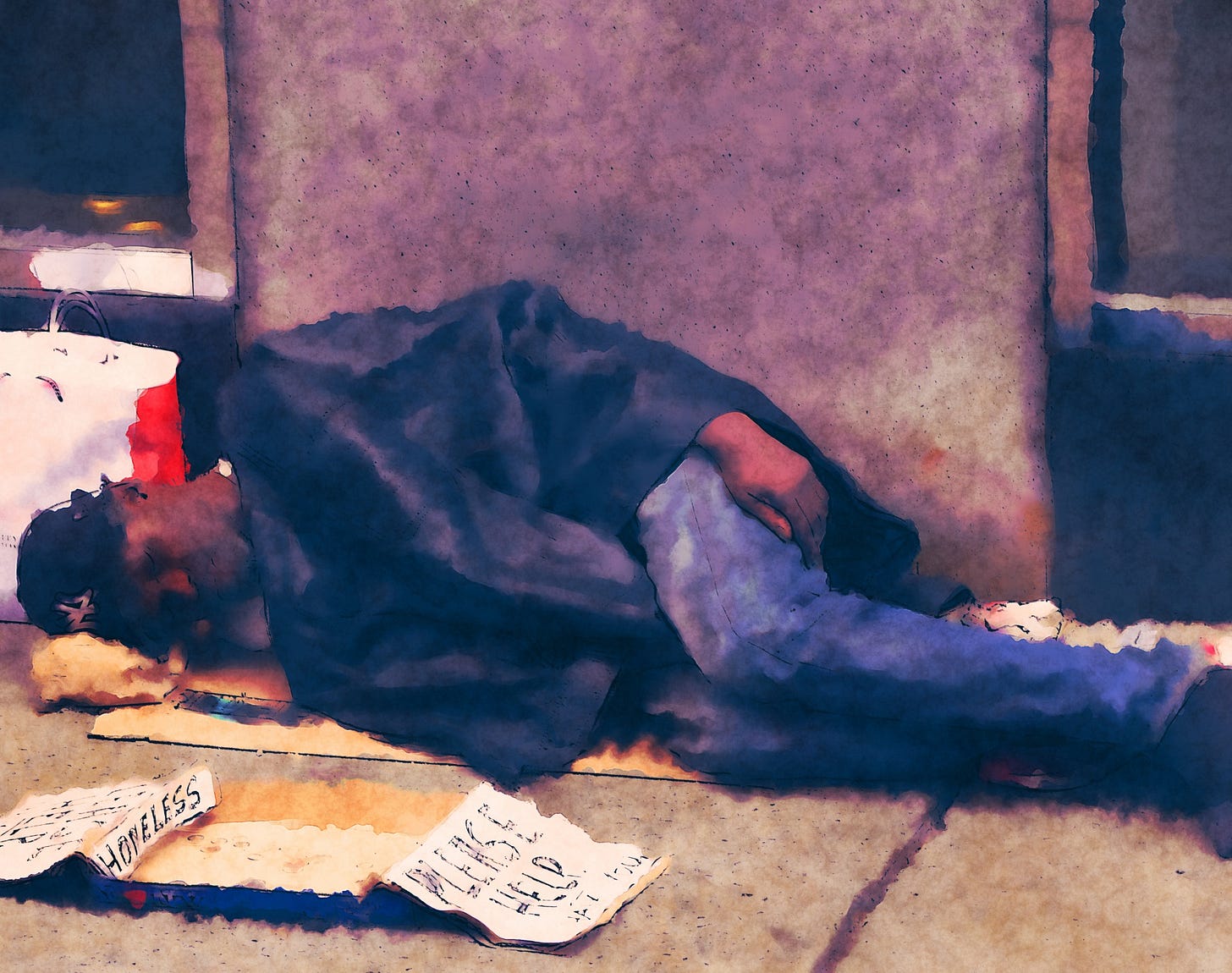Rev. Robert Lee is a Sagamore of the Wabash
Minister, public official, and veteran honored for his years of service; also, FSA conducts homeless census
This article is brought to you by Freedom Financial.
Rev. Robert A. Lee, a long-time community leader, public official, and minister of Second Missionary Baptist Church in Kokomo, just added another title to his prodigious resume – Sagamore of the Wabash.
The award was presented to him by Indiana State Rep. Mike Karickhoff, who took to the stage just ahead of Dr. Cornel West at Ivy Tech Community College Kokomo’s “Doing the Dream” event on Jan. 26 to present the award to his friend and associate.

The two worked together for many years as Lee was appointed to the Kokomo Park Board during Karickhoff’s tenure as the city’s parks department director. Lee served 28 years on the park board with appointments from five different mayors. But that is just one of many contributions made by the state’s latest Sagamore.
“Rev. Lee is a Kokomoan first,” said Karickhoff. “He was called to Kokomo in 1981 to become the lead pastor Second Missionary Baptist Church. His congregation grew, and in 1993 he led the expansion and construction of a new church across the street to accommodate the growing mission of the church.
“In 2013, Rev. Lee retired from full-time ministry, and in 2014 he found himself an elected public servant as the Center Township Trustee. In that role, he provided leadership, mentorship, and compassion to people in need throughout our community.
“His recommendations, commendations, and awards are too numerous to mention. But I am going to recognize three areas that exemplify his years of service. He has received an honorary Associate of Science degree in College and Community Service from Ivy Tech Community College. He has received the NAACP Lifetime Achievement Award, and he has received many awards as a decorated Vietnam War veteran. Since 1981, Rev. Lee has always empowered our community, and we continue to look forward to his leadership.”
The crowd of more than 300 attendees at the Ivy Tech Doing the Dream event stood to give applause and cheer as Lee, currently wheelchair bound while he awaits the delivery of a prosthetic leg to replace the one lost to illness last year, was brought to the stage. He was characteristically congenial and appreciative of the honor.
“They told me not to preach, and I promise I won’t,” said Lee, eliciting laughter from the crowd. “But I’ve got to say I give honor to my Lord and Savior Jesus Christ. Also, I want to thank the selection committee and those who chose to bestow this honor on me. I don’t take it lightly.
“I’ve come to love Kokomo and the people of Kokomo. That’s who I serve. When I decided to go for political office, my signs did not have a party on them. They showed two hands because my mission was people before politics. I’m still serving the people; I’m just not doing it in politics.
“I want to thank you for all you have done for me and my family. I look at all the people I have had contact with; all the people who have worked with me and helped me. I want to thank you. Ivy Tech is close to my heart because of the things you have done to make this community expand. Thank you. May God bless you and keep you and continue to smile upon you.”
The Sagamore of the Wabash is the State of Indiana’s honorary award, given by the governor to recognize those who have contributed to their local communities and the state or brought recognition to the state through their accomplishments. Lee joins luminaries such as television personality David Letterman, NASCAR driver Jeff Gordon, and the late Ryan White of Howard County as recipients of the award.
Counting the homeless
The Family Service Association of Howard County (FSA) undertook an unfortunate but vital task last week as it performed a census of the county’s homeless population for the nationwide “Point in Time” count. Each county is responsible for enumerating the homeless in their communities and passing that information to the U.S. Department of Housing and Urban Development (HUD).
The count took place on Jan. 25, and according to Angela Ciski, FSA’s director of community services, the census takers try their best to get the homeless to participate.
“It is something we do every January,” said Ciski. “We have a designated 24-hour period when we survey the homeless we have in our shelters, as well as outreach to the unsheltered homeless population. We try to find them, connect with them, and survey them so they may be counted.
“We also give them care packages filled with items that are useful for someone experiencing homelessness. We include resource pages to help connect them to services, and we try to get them into our Coordinated Entry system to put them on our housing prioritization list.”
In 2022, Howard County’s homeless population grew to 148 people; up from 97 in 2021. Of those, 17 were children under age 18, and five were young adults under the age of 24. The hope is the 2023 count will be lower, but getting every homeless person counted is a vital, yet difficult, task.
As an enticement to participate and to fulfill needs in the lives of those being counted, FSA handed out backpacks filled with vital supplies, such as hygiene products, non-perishable food items, first aid supplies, blankets, winter wear, duct tape, batteries, and gift cards to local restaurants.
“Finding them is part of the challenge,” said Ciski. “The sheltered population is easy to find, but the unsheltered are not as easy. Prior to the count, we have volunteers who post flyers to advertise the count’s survey sites and care packages in locations where homeless people will see them.”
During the day on Jan. 25, homeless individuals were encouraged to stop by the Kokomo Rescue Mission or Coordinated Assistance Ministries for the count and to pick up a care package. But FSA didn’t wait for the connection to be made. Volunteers combed the community the night before, looking for people staying in cars or in unsheltered situations.
“In our region, we survey folks the next day so we can ask them where they slept last night,” said Ciski. “But we also do a street count the night before. This gives a snapshot of what our homeless situation is, but we also ask questions that have to do with barriers that homeless people struggle with. We can get an idea of the characteristics of our homeless population.”
Specifically, FSA asks questions about repeated homelessness, mental health issues, whether the person is escaping domestic violence, and their military veteran status. All the information helps to better direct assistance to the homeless population. Once the data is collected, HUD and the local community can adjust programs to better meet the needs of the homeless as well as monitor trends in homelessness and its causes.
FSA’s Point in Time census efforts are part of the Region 5 Planning Council, including Cass, Howard, Miami, Tipton, and Wabash counties.





